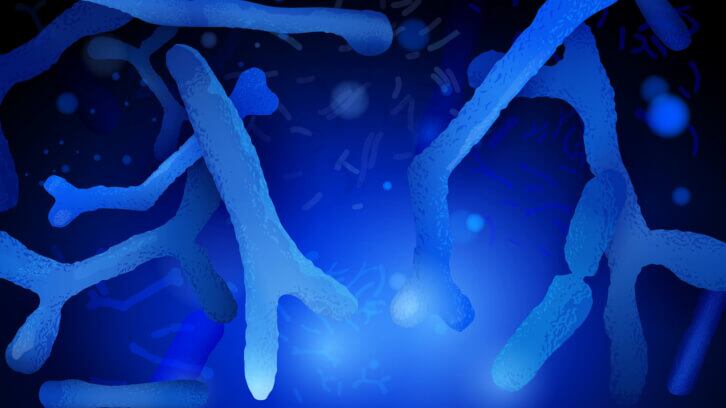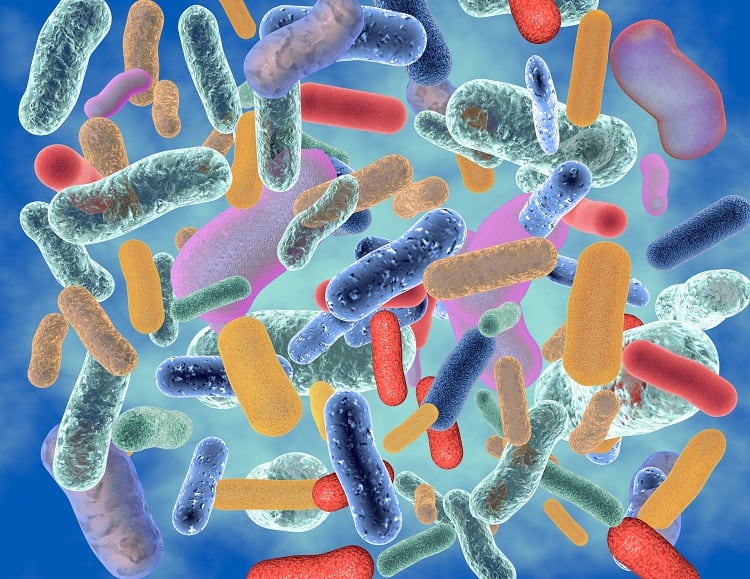Synbiotic Health’s strain was found to significantly reduce abdominal pain by 71%, bloating by 53%, diarrhea by 88% and flatulence by 49% in people with lactose intolerance, compared to placebo.
“Most of the world’s population is lactose intolerant due to age-related downregulation of the β-galactosidase gene,” explained scientists from Purdue University, University of California, Irvine, UC Davis, Synbiotic Health, APC Microbiome Ireland, University College Cork and the University of Nebraska. “Although incidence varies depending on ethnicity and family genetics, about 60% of adults do not produce sufficient β-galactosidase to adequately digest lactose.
“We hypothesized that providing a high β-galactosidase-producing B. adolescentis supplement to lactose maldigesters would reduce symptoms associated with lactose intolerance,” they added in Gut Microbes Reports. “Consistent with this prediction, in the clinical trial, the iVS-1 group reported a significant improvement in the composite symptom score during the treatment phase of the clinical trial compared to the placebo group.”
Synbiotic Health
Synbiotic Health was founded in 2018 by Dr. Bob Hutkins, Dr. Andy Benson, Dr. Tom Burkey, Dr. Jens Walters and Tim Brummels to commercialize the benefits of iVS-1 and other novel microbes developed using the IVS (In Vivo Selection) Platform.
Researchers at the University of Nebraska isolated the most abundant B. adolescentis from a “super” Bifidobacteria responder (an elite collegiate athlete) consuming a GOS (galactooligosaccharide) prebiotic. Because the strain was discovered using the IVS platform, the researchers dubbed it B. adolescentis iVS-1.
Earlier human data showed that iVS-1 significantly improved gut barrier function, which is crucial for immune function and overall gut health. The strain was also found to reach 10-times higher abundance than another commercial probiotic strain.
The new study indicated the strain also has potential for easing lactose intolerance. Dr. Walter, who is affiliated with APC Microbiome Ireland and University College Cork, told NutraIngredients: “While other probiotics have been extensively studied and used for lactose intolerance, what makes iVS-1 different is that it is not only autochthonous to the gut, it was further selected after being enriched with GOS (which is chemically similar to lactose).
“Through this, we have a strain that is both adapted to the human gut (thus colonizes in high numbers) and towards lactose (efficiently competing for the substrates with other gut microbes, some of which produce gas). I think that this combination causes the strong effects that we see when it comes to the prevention of gas formation and the reduction of symptoms.”
Study details
The researchers first tested their hypothesis that the bacterium may help against lactose or milk using in vitro fermentation experiments. These showed that the strain did have high β-galactosidase activity compared to other probiotic strains and that there was a reduction in gas formation by fecal communities.
This was followed by a randomized placebo-controlled clinical trial with 21 people with lactose intolerance. The participants were randomly assigned to receive either B. adolescentis iVS-1 (one billion CFU per day) for two weeks or a placebo. Results showed that iVS-1 abundance was higher at the end of the study and two weeks later, compared to baseline levels.
Additionally, overall Bifidobacterium levels were higher after iVS-1 supplementation. Dr. Bob Hutkins told us that iVS-1 enriching for other bifidobacteria is something the researchers have observed in their earlier human trial, “which was rather surprising,” he said.
“Among the possible explanations is that it is somehow cross feeding other bifidobacteria with metabolic products or perhaps creating an environment conducive for other bifidobacteria. This is why gut microbial ecology is so cool to study.”
Daily symptoms of lactose maldigestion were reduced in the iVS-1 group, with less abdominal pain, bloating, diarrhea, fecal urgency and flatulence.
“In this study, we established that B. adolescentis iVS-1, a human strain previously isolated by in vivo selection on GOS, has high β-galactosidase activity and could reduce gas formation from lactose during in vitro fermentations,” the researchers wrote.
“In a pilot randomized, placebo controlled clinical trial, we provide evidence that supplementation with this strain can provide benefits to lactose maldigesters for managing symptoms, including fecal urgency and diarrhea. Future studies with more participants are encouraged to further support these findings.”
Source: Gut Microbes Reports, 2(1), doi: 10.1080/29933935.2025.2508199, “Two-week supplementation of Bifidobacterium adolescentis iVS-1 reduces symptoms associated with lactose intolerance in lactose maldigesters”, Authors: M. Ramakrishnan, et al.




